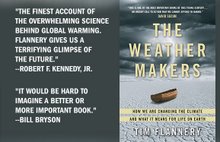PREAMBLE: Earlier this month the world took note of the 10th anniversary of the terrorist attacks on the World Trade Center, New York, that took place on September 11, 2001. While memorial events honored those killed and injured, their loved ones, the rescue teams, and all who were affected, there is no doubt that the event was felt everywhere as one that destabilized the world. Its impact was felt not only in terms of immediate mass casualties but on the global security environment and psychosocial health of countless millions in virtually all countries. It set in motion geopolitical forces whose overreaching objectives even now are overwhelmingly negative, taking into account the waves of violence that continue to occur in various forms from military interventions, “justified” in relation to 9-11, to stigmatization of peoples through state sanctioned racial, linguistic and religious profiling, and associated injustices.[1]
Canada is an interesting case study of some of the unintended consequences of over-reaction: the Rideau Institute has released a new report that tabulates, for the first time, the number of additional dollars spent on national security since the terrorist attacks of September 11, 2001, as well as observations on the opportunities costs that this has entailed. The Rideau Institute is a non-partisan, non-profit, public-interest research, advocacy and consulting group based in Ottawa.
According to the report, the sum already spent in the post–9/11 build-up could have provided significant benefits to Canada. The nearly 100 billion dollars could have rebuilt transit systems in each of Canada’s ten largest cities, it could have provided a national childcare program, or eliminated all payments for prescription medications. Any of these programs could have been fully implemented if the money spent on a national security establishment since 2001 had been used differently.
We agree with the report’s conclusion that “It is time to re-evaluate whether the dramatic post–9/11 spending on national security could be more appropriately spent over the next ten years.”
Further we are obliged to note that the current global economic crisis includes among its roots vast over-expenditure on military budgets. This too contributes to current social and economic crises in many countries, not least the United States, and the extent to which this impacts all countries is literally unquantifiable.
As the 10th Anniversary of 9-11 will arise only once, and the opportunity so impotant, this issue of PacificSci Global Perspectives presents verbatim, key content from the Rideau report (Note: italics and bolding - our emphasis).
Reference:
1. White F. The case for an epidemiology of terrorism. Int J Epidemiology (2002) 31, 6: 1273-1274. http://ije.oxfordjournals.org/content/31/6/1273.full
The RIDEAU REPORT:
The report, called "The Cost of 9/11: Tracking the Creation of a National Security Establishment", was written by economist David Macdonald, and examines how much federal government spending on Department of National Defence, Foreign Affairs, Public Safety and related agencies has increased over pre–9/11 levels.
“A decade after the attacks of 9/11 it’s time to re-evaluate whether we should continue the high level of national security spending,” says Steven Staples, President of the Rideau Institute. “The government has created a national security establishment in Canada.”
The report’s main findings include the following:
• Since 2000-01, the year before the September 11, 2001 terrorist attacks on the United States, Canada has devoted an additional $92 billion ($69 billion inflation-adjusted) to national security spending over and above the amount it would have spent had budgets remained in line with pre–9/11 levels.
• In this fiscal year, 2011-12, Canada will spend $34 billion on its national security, which is an additional $17 billion ($13 billion inflation-adjusted) more than the amount it would have spent had budgets remained in line with pre–9/11 levels. This is an increase of 105% (60% inflation-adjusted).
• Military expenditures have nearly doubled (+90%) since 9/11 (48% inflation-adjusted), and the Department of National Defence is by far the largest consumer of national security expenditures, at more than $21 billion this fiscal year.
• Security and Public Safety programs have nearly tripled in spending, from $3 billion to almost $9 billion annually ($3.9 billion to $8.7 billion inflation-adjusted), or 186% since 9/11 (123% inflation-adjusted).
Author David Macdonald hopes the report will launch a discussion about future spending. “At a time when the global economy seems to be a greater threat to Canadians’ security than global terrorism, should we spend another $92 billion or more over the coming decade on a national security establishment?” said MacDonald.
Source: Media Release, Rideau Institute, Sept 7, 2011
Conclusion
The following statement appears in the report:
“While other countries have been much harder hit by terrorism, Canada has nonetheless committed significant resources since 9/11 to national security. While some may feel that the $92 billion spent since 2001 has been worth it, others might argue that the money could have been better spent. The real question today is whether or not we should continue this level of expenditure. Should Canada spend another $100 billion or more over the coming decade on a national security establishment? Certainly the political situation today is much different than it was in 2001, and the global economy seems to be a greater threat to Canadians’ security than global terrorism. At the same time, pressures are mounting here in Canada, with high unemployment and large deficits at the federal level. The sum that has been already spent in the post–9/11 build-up could have provided significant benefits here in Canada. Those nearly 100 billion dollars could have easily rebuilt the transit systems in each of Canada’s ten largest cities, it could have provided a national $10-a-day childcare program, or eliminated all payments for prescription medications. Any one of these programs could have been fully implemented if the money spent on a national security establishment since 2001 had been used differently. It is time to re-evaluate whether the dramatic post–9/11 spending on national security could be more appropriately spent over the next ten years.”
Reference: Macdonald D, The Cost of 9/11- Tracking the Creation of a National Security Establishment in Canada. Rideau Institute. Ottawa, September 2011.
FROM a Great Canadian and World Statesman
"A great gulf... has... opened between man's material advance and his social and moral progress, a gulf in which he may one day be lost if it is not closed or narrowed..."
Lester B Pearson
http://nobelprize.org/nobel_prizes/peace/laureates/1957/pearson-lecture.html
Thursday, 15 September 2011
Subscribe to:
Comments (Atom)
INSPIRATIONAL WELCOME ............................... from T.S.Eliot's "Little Gidding"
If you came this way From the place you would come from... It would be the same at the end of the journey...
If you came, not knowing what you came for, It would be the same... And what you thought you came for Is only a shell, a husk of meaning... From which the purpose breaks only when it is fulfilled If at all.


























